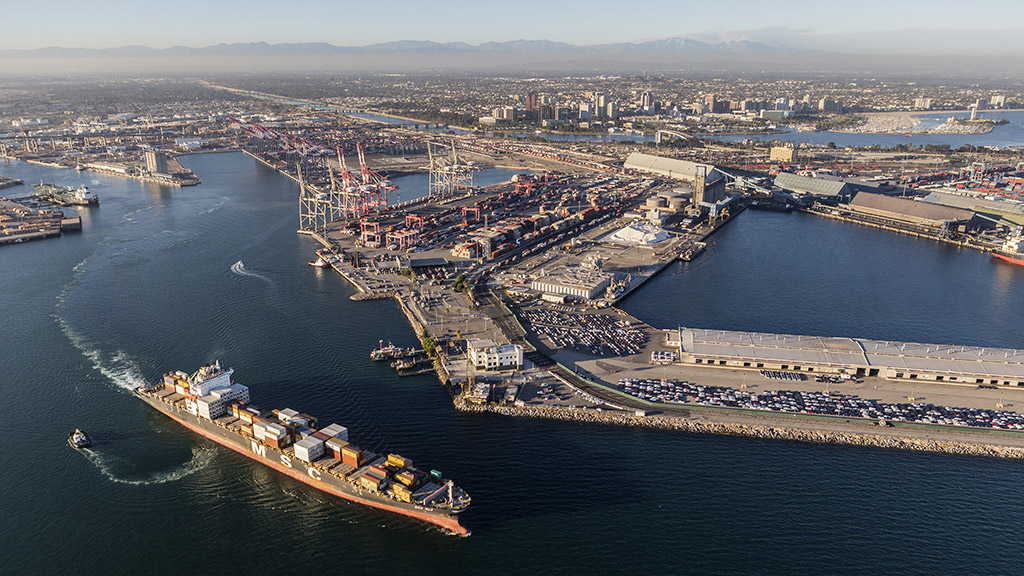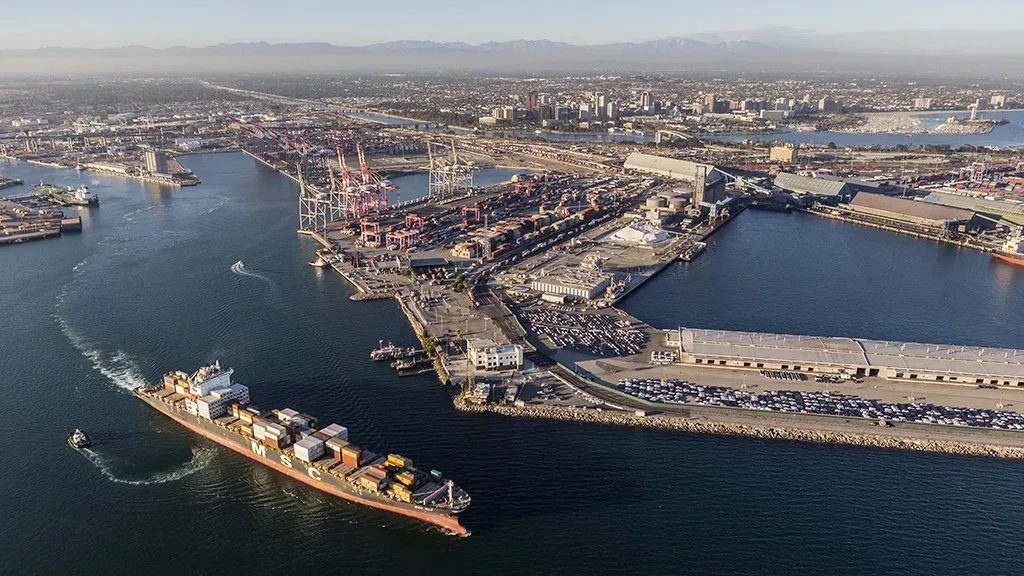
The Biden Administration is stepping in to address delays and congestion across the transportation supply chain.
The administration is meeting today with leadership from the Ports of Los Angeles and Long Beach and the International Longshore and Warehouse Union (ILWU) to address the delays and bottlenecks in the supply chain. The leaders will announce that the ports of Los Angeles and Long Beach will begin operating 24/7.
These two ports are the point of entry for 40% of containers entering the U.S., which is expected to increase throughout the holiday season, according to the White House. In August, the Port of LA has moved 30% more and Long Beach more than 20% more containers in the U.S. The ports will add a new off-peak night shift and weekend hours, doubling the hours that cargo will move out of its docks.
The ILWU has agreed for its members to work those extra shifts. Moving goods during off-peak hours will help alleviate bottlenecking at the ports; at the Port of LA, goods move 25% faster at night than during the day, according to the White House. The goal is to reduce congestion at highways, railroads, and warehouses during the day.
Large companies will also use expanded hours to move cargo off the docks for ships to come to shore faster, projecting that more than 3,500 additional containers will move at night through the end of the year. From the White House:
The nation’s largest retailer, Walmart, is committing to increase its use of nighttime hours significantly, and projects they could increase output by as much as 50% over the next several weeks.
UPS is committing to an increased use of 24/7 operations and enhanced data sharing with the ports, which could allow it to move up to 20% more containers from the ports.
FedEx is committing to work to combine an increase in nighttime hours with changes to trucking and rail use to increase the volume of containers it will move from the ports. Once these changes are in place, they could double the volume of cargo they can move out of the ports at night.
Samsung is committing to move nearly 60% more containers out of these ports by operating 24/7 through the next 90 days. 72% of U.S. homes have at least one Samsung product, from appliances to consumer electronics.
The Home Depot is committing to move up to 10% additional containers per week during the newly available off-peak port hours at the Ports of L.A. and Long Beach.
Target, which is currently moving about 50% of its containers at night, has committed to increasing that amount by 10 percent during the next 90 days to help ease congestion at the ports.
President Biden launched the Supply Chain Disruption Task Force in June to focus on transportation and logistics bottlenecks, and Port Envoy John Porcari was appointed in August to help coordinate shipments from private companies that transport within the supply chain. Secretary Buttigieg and Porcari will continue to work with all stakeholders to help more businesses access these expanded hours.

